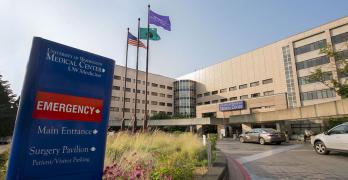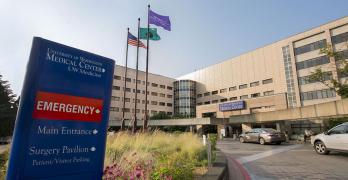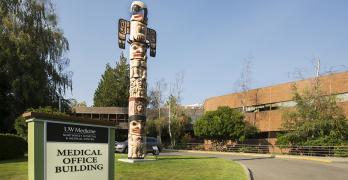Lung Care
Advanced pulmonary care to help you breathe easier

Diagnosis and treatment of lung and breathing problems and advanced respiratory therapy techniques to optimize function.
A Broad Scope of Specialties
We provide multidisciplinary lung care for everyone from elite athletes to patients with end-stage lung disease and transplant candidates.
Expertise You Can Trust
We provide the highest standard of evidence-based lung care and surgery informed by the most up-to-date clinical and scientific research.
Focused on You
Our knowledgeable and dedicated specialists put patients first and encourage you to take an active role in your treatment and recovery.
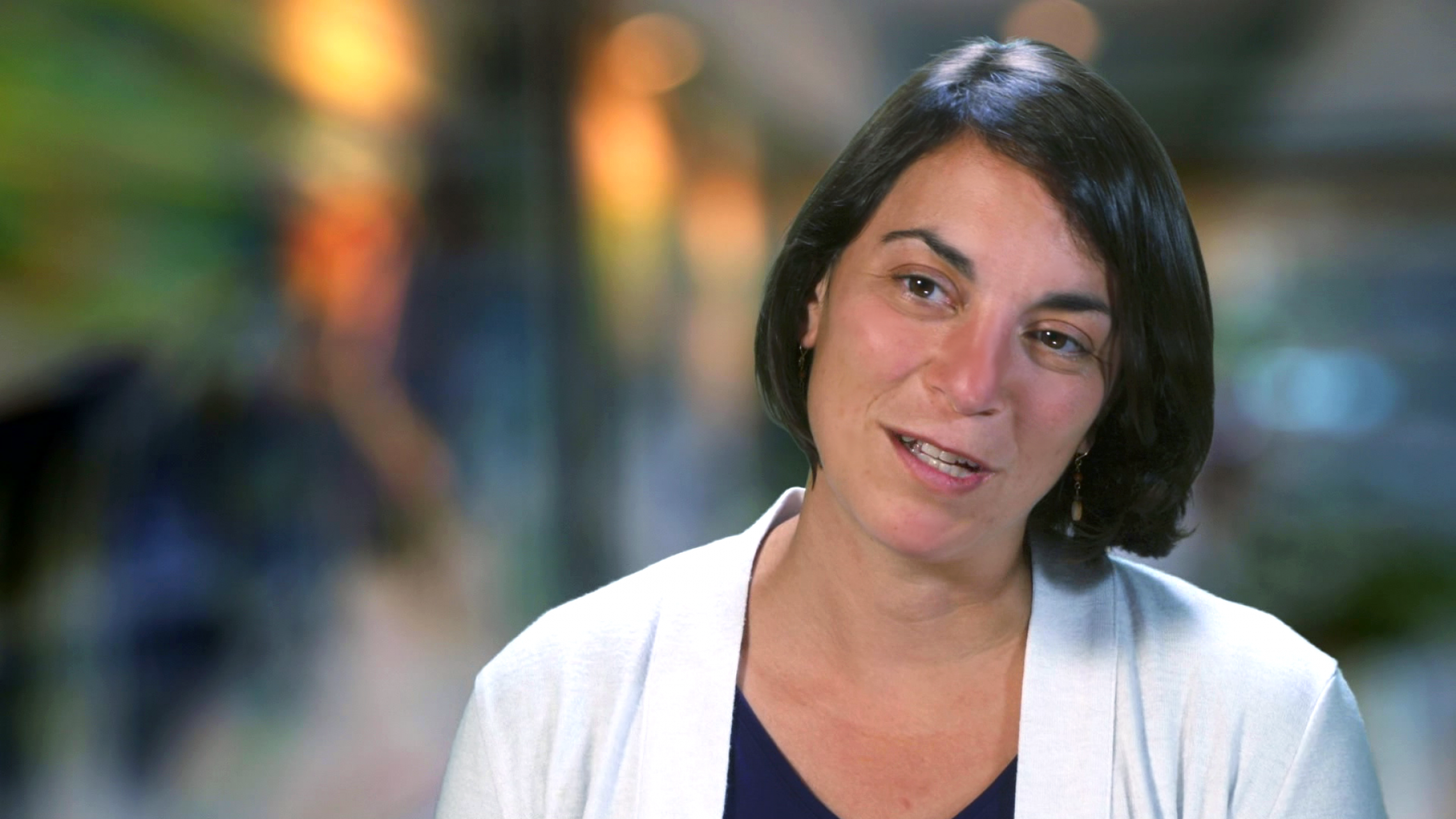
Meet the provider: Cora Sack, M.D.
Dr. Sack is a board-certified pulmonary disease and critical care physician who specializes in environmental medicine and caring and advocating for workers. View full bio.
Some of our common services:
Asthma is a long-term disease of the airways of the lungs, in which the airways become sensitive to allergens and irritants. As a result, they become inflamed and can narrow, making breathing difficult. Our lung specialists are skilled at diagnosing, treating and managing mild and severe asthma using the latest medications and other therapies.
This procedure allows your physician to directly examine your airways and lungs using a fiber optic scope that is introduced into the airway. During the procedure, tissue samples are gathered to aid in diagnosis and to remove objects or clear mucus from the airways.
Chronic obstructive pulmonary disease refers to a number of progressive lung diseases, including emphysema, chronic bronchitis and refractory asthma (asthma that doesn't respond to treatment). People with COPD experience increasing breathlessness. This condition is progressive and currently incurable, but there are many ways to manage it with the right treatment and diagnosis.
UW Medicine pulmonologists specialize in critical care medicine, directing and coordinating care for critically ill patients in the hospital. They work in partnership with other medical and surgical specialists and regularly meet with the patient, family and other clinical professionals on the care team to discuss the patient’s condition, diagnosis, treatments and prognosis. Pairing their pulmonology expertise with skilled ICU nurses, respiratory therapists, nutritionists and other staff ensures that patients with emergent medical problems receive the best life-saving care possible."
Cystic fibrosis is an inherited chronic disease that affects the lungs and digestive system. It causes the body to produce unusually thick, sticky mucus that can lead to life-threatening lung infections and other conditions. Our award-winning adult cystic fibrosis program is the only adult program in the region. Our integrated approach includes multidisciplinary care, research and clinical trials to advance the science behind CF and extend the lives of our patients. Thanks to a long-term partnership between the University of Washington and the Cystic Fibrosis Foundation, as one of the seven original CFF Therapeutic Network sites, our patients have benefitted from nearly 30 years of medical breakthroughs.
People with cystic fibrosis tend to have a higher incidence of asthma and asthma-like symptoms such as wheezing and coughing. Our specialists are experts at identifying these symptoms and treating and managing them using the most current medications and lifestyle approaches specialized for cystic fibrosis patients.
This condition injures and scars the walls of the airways to the lungs, so they are unable to clear out mucus or properly carry oxygen. It's caused by factors such as infection, inflammation and disorders like cystic fibrosis. Our pulmonologists are experts at diagnosing, treating and managing bronchiectasis using medication, chest physical therapy, oxygen therapy and, in some cases, lung transplant.
People with cystic fibrosis are at greater risk for frequent and chronic respiratory infections due to thickened mucus in the lungs, which traps bacteria. Our specialists are highly trained at identifying these infections and treating them with targeted medications and other therapies, while educating patients on ways to manage respiratory symptoms and stay as healthy as possible.
For patients with advanced lung disease caused by cystic fibrosis, a lung transplant can be life-saving and help improve quality of life. If our skilled lung care specialists determine that a transplant is right for you, we'll refer you to our lung transplant department, which offers shorter patient wait times and better patient outcomes than the national average.
This minimally invasive procedure is used to diagnose lung cancer, infections and other health problems causing enlarged lymph nodes in the upper respiratory tract. Using a very fine needle, your pulmonologists can take tissue and fluid samples from your lungs and surrounding lymph nodes, which are used to diagnose and determine the stage of lung cancer and other diseases
General pulmonary care is often the entry point for specialty lung care and complex cases that require a high level of specialization for pulmonary and respiratory-related diseases, such as asthma, emphysema, chronic obstructive pulmonary disease (COPD), asbestosis, lung cancer, sarcoidosis, pulmonary fibrosis, sleep disorders and other lung related diseases. The General Pulmonary Clinic at UW Medical Center offers chest imaging and integrated specialty care.
Interstitial lung disease is the name for a group of 100 acute and chronic lung disorders that inflame or scar the lungs, leading to a permanent loss of your lung tissue's ability to carry oxygen. Our Center for Interstitial Lung Disease, led by one of the world's leading experts in the diseases, provides full and thorough evaluation for accurate diagnosis and management of acute and chronic interstitial lung diseases based on the latest clinical research developments. The CILD is recognized as a Center for Excellence by the Pulmonary Fibrosis Foundation and Foundation of Sarcoidosis Network.
Interstitial lung disease can be caused by autoimmune disorders such as lupus, rheumatoid arthritis, and scleroderma. In these cases, the body's immune system creates an inflammatory response in the lungs, which can lead to scarring. Our specialists are skilled at helping patients with autoimmune disorders manage ILD using the latest medications and other methods.
This is a type of scarring in the lungs that makes lung tissue stiff and less able to carry oxygen. Interstitial lung disease often causes this type of scarring. The primary treatment for advanced pulmonary fibrosis is lung transplant. Our pulmonary specialists are skilled at diagnosing this condition and can refer you to our outstanding lung transplant team if necessary.
This is a rare disease that causes small lumps of inflammatory cells, called granulomas, in the lungs. If the lumps don't heal and disappear on their own, lung tissue can become scarred and stiff. Our specialists are highly trained in diagnosing this condition and helping you manage it with medication, exercise and other methods.
For patients with advanced lung disease, a lung transplant can be life-saving and vastly improve quality of life. Our skilled lung care team can comprehensively evaluate whether a lung transplant is right for you along with identifying and addressing any health problems that might cause complications after surgery. We also provide ongoing multidisciplinary care after your transplant.
If you have an increased risk for lung cancer, such as a history of smoking, your primary care provider may recommend yearly preventative screening for lung cancer. UW Medicine and Fred Hutchinson Cancer Center provide certified lung cancer screening services that are safe, painless, and covered by most insurance, including Medicare. Talk to your primary care provider or call the lung screening program coordinator at 206.485.9090.
Our lung transplant program—the only one available in the Northwest—has received national recognition for safety and effectiveness. The program’s patients have a survival rate of greater than 90 percent, exceeding the national average. Our team performs up to 60 transplants per year and has transplanted nearly 1000 patients. Recipients of a lung transplant receive lifelong care from the lung transplant team, which is comprised of specialists in pulmonary transplant medicine, thoracic surgery, rehabilitation medicine, nursing, pharmacy, nutrition, social work, laboratory medicine, radiology and pulmonary diagnostics.
The most severe symptom of neuromuscular disease, which causes a breakdown of muscles and nerves, is respiratory failure due to a weakening of the muscles that help you breathe. The Neuromuscular Respiratory Failure Clinic at UW Medicine stands alone as the only clinic of its kind, offering care for neuromuscular breathing issues for patients across Washington, Wyoming, Alaska, Montana and Idaho. Our clinic has treated patients with neuromuscular disease for more than 25 years and has developed pioneering care for neuromuscular respiratory failure. Our lung specialists are experts at evaluating respiratory function and working closely with other specialists to determine the best course of action for your individual needs.
Inform yourself to make the best choices for your health and care with UW Medicine patient education resources.
These tests measure how well you breathe and are commonly used to diagnose asthma and other lung diseases, as well as evaluate the status of a disease that has already been diagnosed. Common tests include spirometry, which measures the levels and pace of oxygen flowing out of the lungs.
Emotional support is an important part of your treatment. Support groups and community resources can help you and your loved ones through treatment and recovery.
UW Medicine has the only accredited, comprehensive pulmonary vascular care program in the region and is one of the few programs in the country that provides all aspects of pulmonary vascular care. This includes careful diagnostics, a full range of medications for pulmonary vascular disease, care for pulmonary hypertension, pulmonary thromboendarterectomy, balloon pulmonary angioplasty and lung transplant. We are also home to the national registry for patients with pulmonary arterial hypertension and are active in researching new and cutting-edge treatments. Our pulmonologists are experts at recognizing this condition, and can help you stay healthy with medication, lifestyle changes, support groups and other methods.
Pulmonary hypertension is high blood pressure in the lungs, a serious condition that can lead to heart failure if not treated effectively. Pulmonary arterial hypertension is a rare type of pulmonary hypertension in which increased high blood pressure in the lungs is caused by a narrowing of the small arteries throughout the lungs, reducing blood flow. Over time, this condition can damage the heart. Our pulmonologists can accurately diagnose pulmonary arterial hypertension and help you manage it to stay as healthy as possible.
This type of pulmonary hypertension is caused by a narrowing of the veins that carry oxygen from the lungs to the heart, due to an abnormal buildup of fibrous tissue within the veins. Over time, this condition can damage the heart. Our pulmonologists can expertly diagnose and treat this condition using the latest clinical protocols.
This rare form of pulmonary hypertension causes overgrowths of tiny capillaries in the lungs, which form lesions that block blood flow and raise blood pressure within the lungs. Our pulmonologists are skilled at recognizing this condition, which mimics other types of pulmonary hypertension and can be fatal if not diagnosed in time. The primary treatment for pulmonary capillary hemangiomatosis is lung transplant.
This is a type of high blood pressure in the lungs that can develop in people who have had a pulmonary embolism, generally 6 months to 2 years later. Our pulmonologists can diagnose and treat this potentially curable condition with the latest medication and highly specialized surgery.
Our thoracic surgery team treats lung cancer and other thoracic malignancies, including tumors of the mediastinum, pleura, chest wall and esophagus.
Surgeons and clinic staff work closely with a broad range of physician specialists and providers across UW Medicine to ensure that our patients receive a multidisciplinary, personalized, contemporary approach — including video-assisted thoracic surgery (VATS) and robotic-assisted technology — in the evaluation and management of their conditions.
A radiologist performs this procedure when unexplained fluid accumulates in the chest cavity outside the lungs. The test is performed to relieve symptoms and determine the cause of extra fluid in the chest cavity
Convenient care, in your neighborhood.
Bronchoscopy Suite at UW Medical Center - Montlake
Medical Specialty
Hours Today
Appointments
Center for Interstitial Lung Diseases at UW Medical Center - Montlake
Medical Specialties
Hours Today
Appointments
Chest Clinic at Harborview
Medical Specialty
Hours Today
Appointments
General Pulmonary Clinic at UW Medical Center - Montlake
Medical Specialties
Hours Today
Appointments
Respiratory Clinic at UW Medical Center - Northwest
Medical Specialties
Hours Today
Appointments
Thoracic Surgery Clinic at UW Medical Center - Montlake
Medical Specialties
Hours Today
Appointments
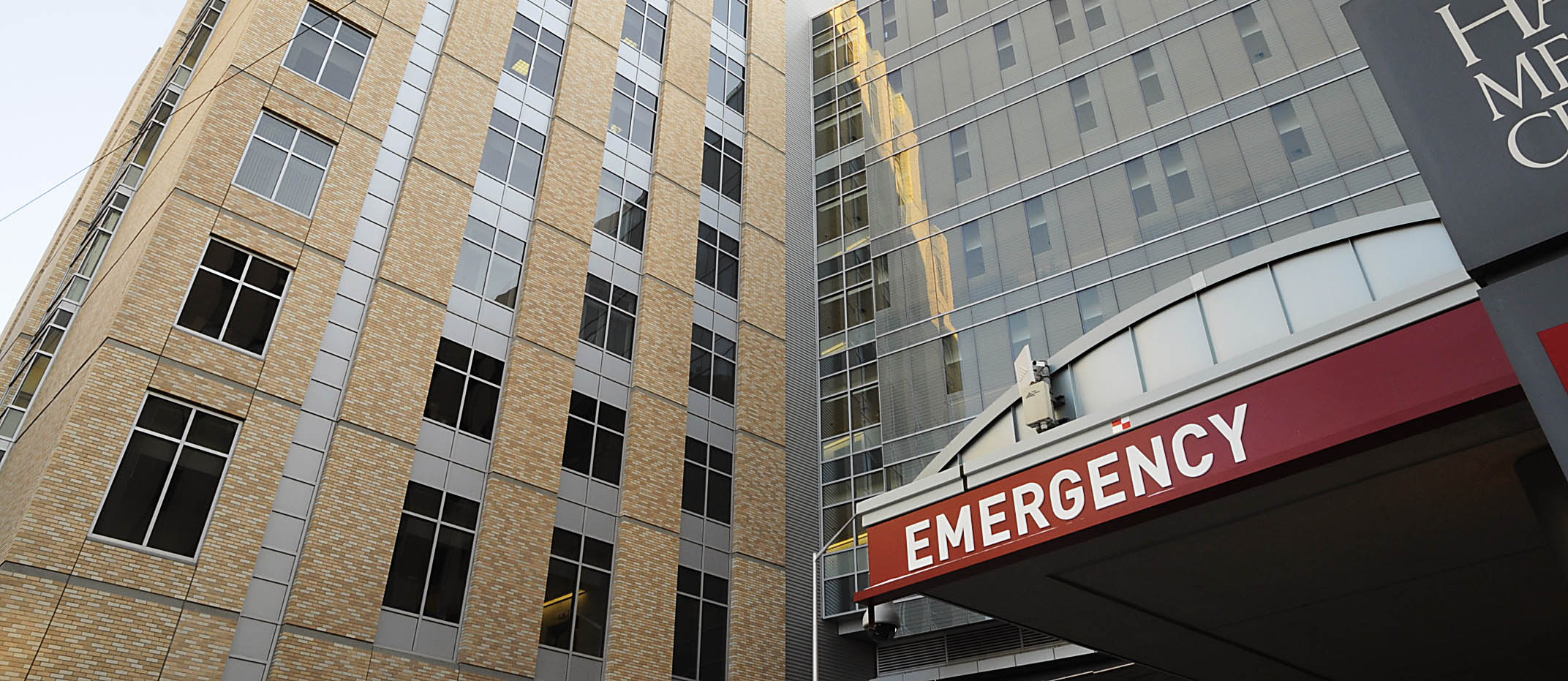
Should I go to the emergency room or urgent care?
If you have an illness or injury that you think may be life-threatening without immediate care, call 911 or go to the nearest emergency room.
If you have an illness or injury that is not life-threatening but needs attention today, go to urgent care.

